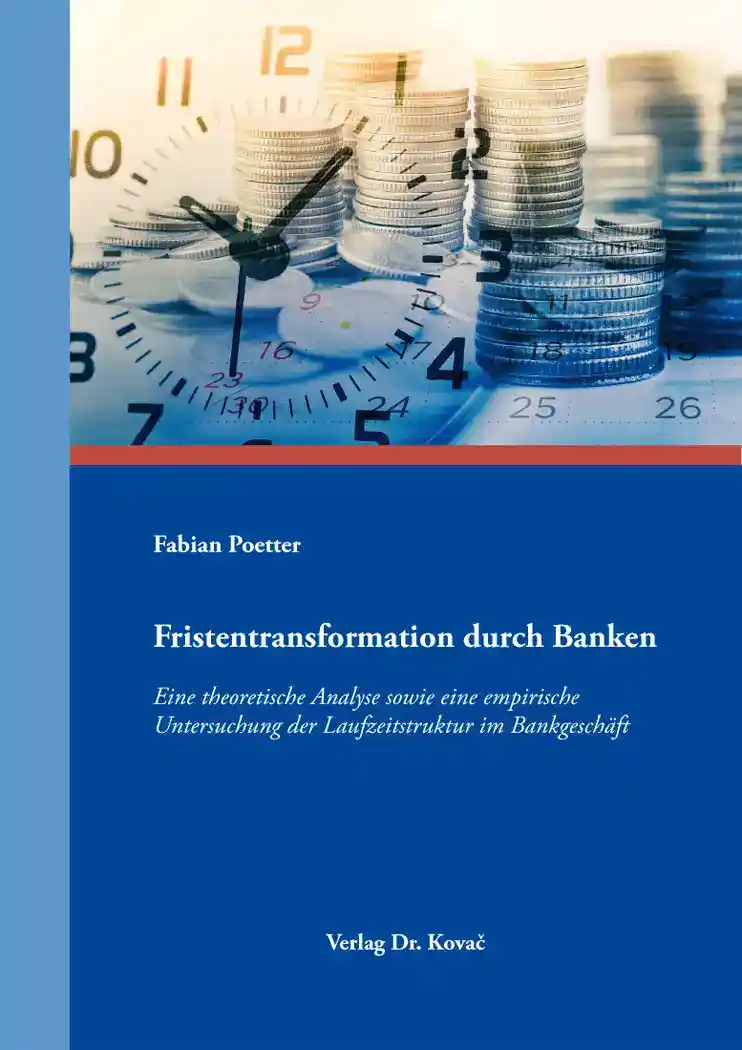Fabian PoetterFristentransformation durch Banken
Eine theoretische Analyse sowie eine empirische Untersuchung der Laufzeitstruktur im Bankgeschäft
Schriftenreihe volkswirtschaftliche Forschungsergebnisse, volume 230
Hamburg 2022, 250 pages
ISBN 978-3-339-13050-1 (print)
ISBN 978-3-339-13051-8 (eBook)
About this book deutschenglish
From an economic perspective, banks act as financial intermediaries that balance opposing interests between savers and debtors. According to the principle of maturity transformation, banks offer time flexible deposits and pass on the generated funds in the longer-term as part of their lending business. While maturity transformation on the one hand fulfils an economically desirable function, there is a business incentive for banks as providers of such a transformation service on the other hand. If a bank finances itself through comparatively short-term deposits and lends these funds in turn with a longer perspective, it creates a necessary precondition for a positive net interest margin. In a normal economic environment, the yield curve is increasing so that the interest rate of a financial contract with a short term proves to be lower than that of a contract with a longer term.
The research question of the book is therefore directed at the circumstances under which maturity transformation has developed, in what way it creates an economic benefit and why economic agents establish such a transformation service intrinsically motivated. In this context, the principles according to which banks weigh up the opportunities and risks associated with maturity transformation are examined. The background will be deepened through a theoretical model that outlines the interaction between a bank and a representative depositor.
Furthermore, it follows a contemporary observation of the development of maturity transformation within the banking sector. Methodologically, an empirical model is used to analyze a dataset about the deposit and lending business, classified according to maturities, of banks located in Germany. In addition, a possible positive influence of the slope of the yield curve on maturity transformation is evaluated.
